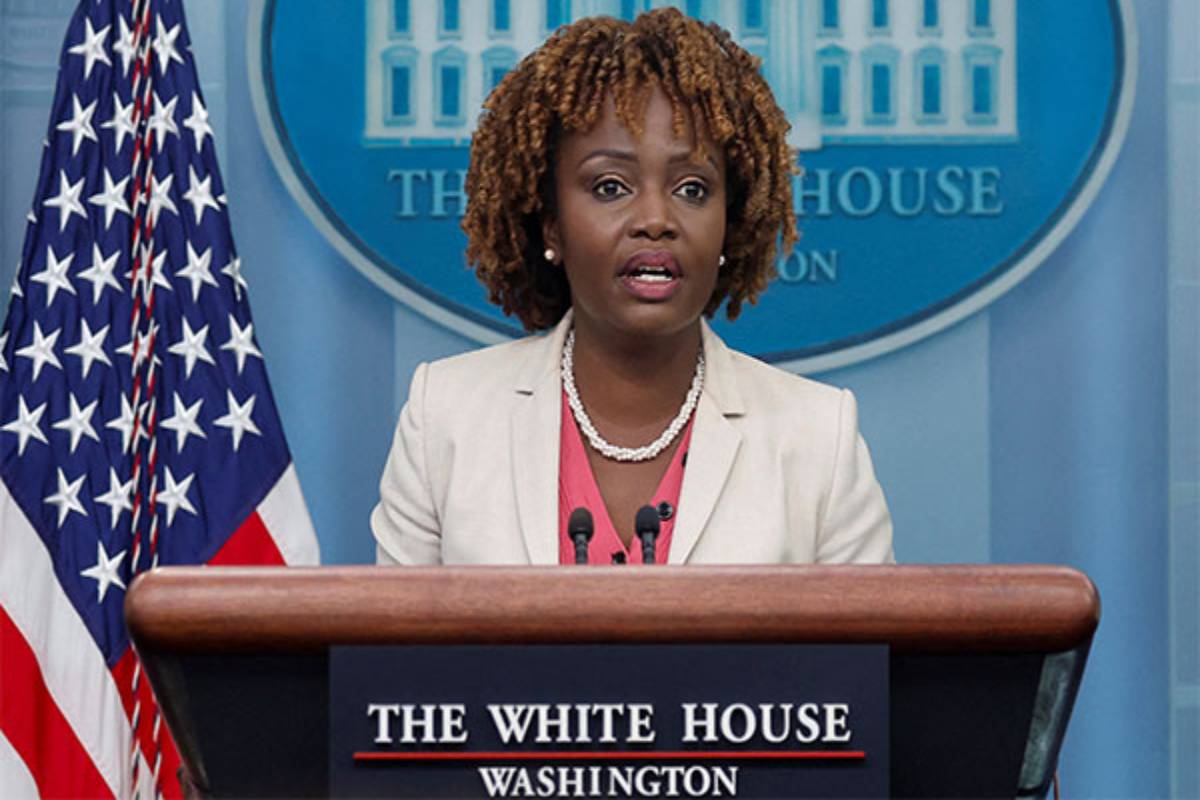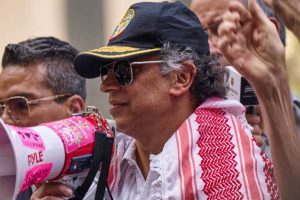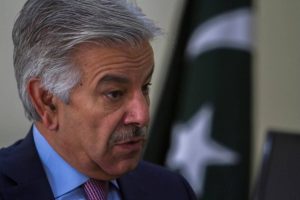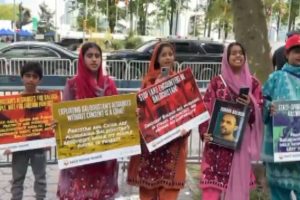The United States has rejected the allegations of the government’s involvement in the Bangladesh crisis, including the protests in the country that led to the deaths of hundreds of people.
Refuting all the reports and rumours, the White House Press Secretary, Karine Jean Pierre, said in a media briefing on Monday (local time), “So, we have had no involvement at all. Any, reports or rumours that the United States government was involved in these, in these events is simply, simply false. That is not true.”
Jean Pierre further stated that Bangladeshi people should determine the future of the Bangladeshi government.
“This is a choice for and by the Bangladeshi people. We believe that the Bangladeshi people should determine the future of the Bangladeshi government, and that’s where we stand. Any allegations, certainly we will continue to say, and what I have said here is simply untrue,” Jean Pierre said.
Recently, in an interview with ANI, Michael Kugelman, a US-based Foreign Policy expert, and Director of the South Asia Institute at The Wilson Center, refuted allegations of foreign interference behind the mass uprising that led to Sheikh Hasina’s ouster, stating he had not seen any “plausible evidence” to support these claims.
He noted that the Hasina government’s harsh crackdown on protesters escalated the movement. “My view has been very simple. I see this as a crisis that was driven by purely internal factors, by students who were unhappy about a particular issue, job quotas that they didn’t like and they were worried about the government. Sheikh Hasina’s government cracked down very hard on the students and that then turned the movement into something much bigger. And this was simply driven by internal factors,” Kugelman said.
Kugelman dismissed allegations from Sheikh Hasina’s son, Sajeeb Wazed Joy, who claimed foreign interference behind the protests, saying that the unrest was driven by “internal factors.”
“Now, you know, when there is a conspiracy theory that is rooted in issues of foreign influence, one cannot disprove such type of allegation. Also, at the same time, one cannot conclusively prove it. I think the onus, is the responsibility to provide a plausible explanation for how it can be true. I am yet to hear that from Sheikh Hasina’s son, from anyone,” he added.
Meanwhile, speaking on the protests outside the White House against the recent attacks on Hindus in Bangladesh, White House Press Secretary, Jean Pierre said that the US is going to continue monitoring the situation.
Jean Pierre said, “We are certainly going to continue monitoring the situation. I don’t have anything else to say or to add beyond that.”
“When it comes to any type of human rights issue here, the President has been very consistent in speaking loud and clear in public and also privately and he will continue to do that. But, I don’t have any specific engagement to speak to at this time,” she added.
Bangladesh is experiencing a fluid political situation, with Sheikh Hasina resigning from the post of Prime Minister on August 5 amid mounting protests. The protests, led mainly by students demanding an end to a quota system for government jobs, evolved into anti-government demonstrations.
A large number of people protested outside the White House in Washington on Friday last week against alleged violence targeting minority Hindus and others in Bangladesh since former Prime Minister Sheikh Hasina’s ouster.
Protesters carried American and Bangladeshi flags and held posters demanding that Bangladeshi minorities be “saved.” They chanted slogans of “We want justice” and called for peace amid the recent surge in violence.
The crowd, which included activists from various human rights organizations, members of the Bangladeshi diaspora and Indian-American Hindu allies, came from Washington, Maryland, Virginia, and New York.
Indian Prime Minister Narendra Modi also called for the “safety and protection” of Hindus and other minorities in Bangladesh in a message on X on Thursday.
“My best wishes to Professor Muhammad Yunus on the assumption of his new responsibilities. We hope for an early return to normalcy, ensuring the safety and protection of Hindus and all other minority communities. India remains committed to working with Bangladesh to fulfill the shared aspirations of both our peoples for peace, security and development,” PM Modi said in a post on X.
Thousands of Bangladeshi Hindus have been fleeing to neighbouring India to escape the violence. Hindus, who make up about 8 per cent of Bangladesh’s 170 million population, have traditionally supported Hasina’s Awami League party, which has faced backlash following violent clashes between anti-quota protesters and security forces last month.
Several US leaders, including Republican Congressman Pat Fallon and Congressman Raja Krishnamoorthi, have also spoken out against the alleged violence in Bangladesh.





